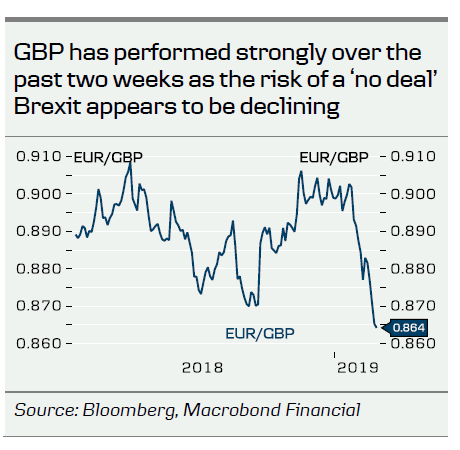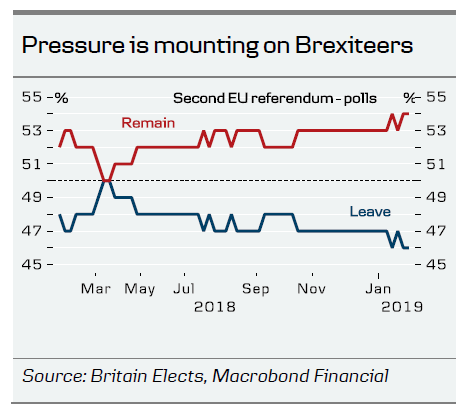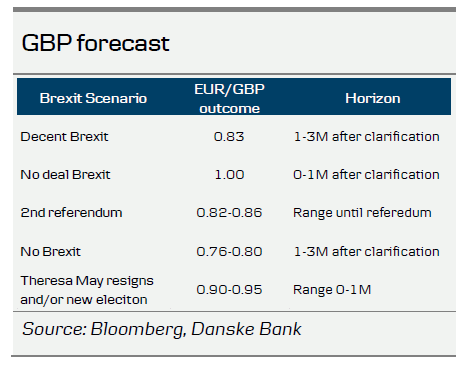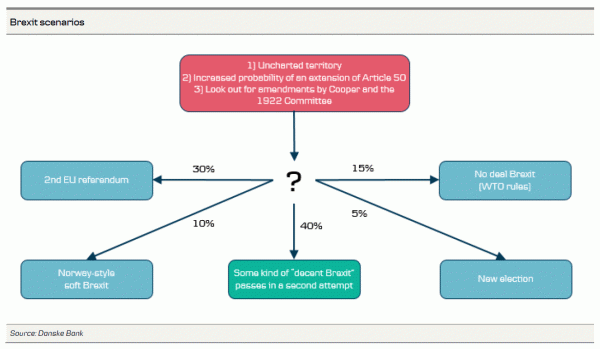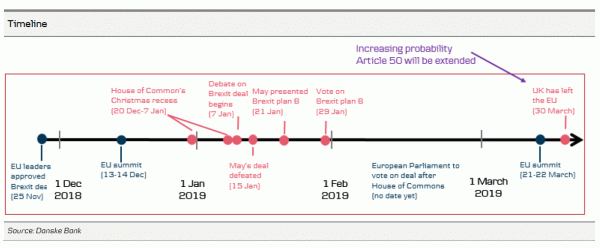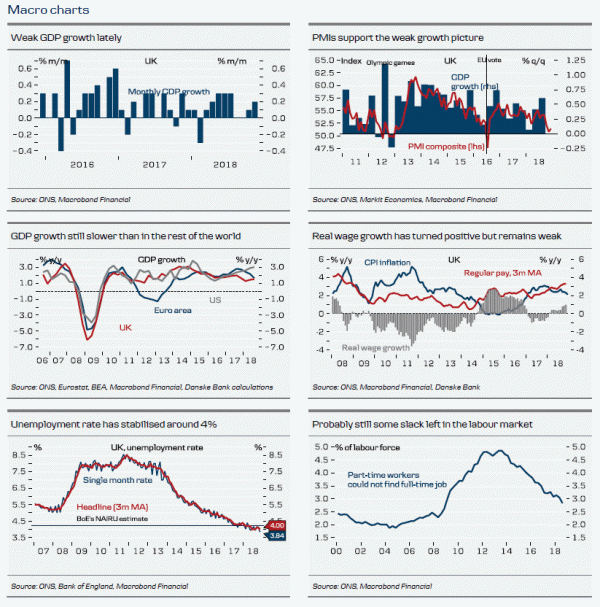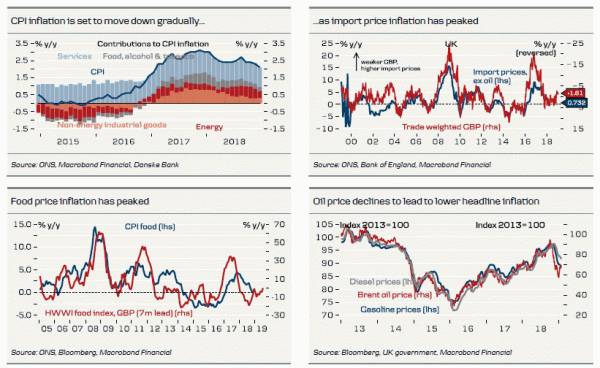On Tuesday at 20:00 CET the House of Commons is voting on PM Theresa May’s statement on her Brexit plan B including amendments. The vote is not legally binding but it is set to shed light on what the House of Commons wants. While there are many suggested amendments, it is up to the speaker to decide which ones the Commons gets to vote on. At the moment, the two most important amendments are the Cooper amendment and the amendment by the top of the so called 1922 Committee of the Conservative Party.
The Cooper amendment would give the House of Commons a vote on whether to ask for an extension of Article 50 or not (for up to nine months), in case May has not won support for a deal on 26 February. It seems likely it will pass given widespread Labour support and also backing from pro-EU Conservatives. This would be positive, as it would be another sign that a small majority in the Commons will not allow a ‘no deal Brexit’ to happen.
The amendment from the 1922 Committee would replace the backstop with ‘alternative arrangements’. If this wins backing, PM May could go back to Brussels and tell what would be necessary to get the deal over the finish line but the EU and Ireland do not seem willing to change the backstop framework.
As we have argued for some time, the pressure on the politicians on all sides will increase, as we approach 29 March. This is also the case for the European Research Group (led by Jacob Rees-Mogg and consists of 60-80 Conservative MPs), who have begun to sound a bit more afraid of whether Brexit will actually happen or not (see e.g. Financial Times), which may force them to back May’s deal eventually. At least it seems like some Conservatives are looking for a good reason to climb down the tree, as ‘May’s deal is better than no Brexit’.
One good reason could be if Theresa May wins backing from her supporting party DUP from Northern Ireland. Recently, the DUP has softened its position on the much hated backstop, as it may accept the temporary ‘alternative arrangements’, as suggested by the 1922 Committee amendment. Also the DUP is under increasing pressure that a ‘no deal’ Brexit may lead to an independence vote in Northern Ireland, see The Sun. The problem for Theresa May is that even if she gets the support from the DUP and the Brexiteers, she will still need to persuade either the pro-EU Conservatives or get more Labour votes. So it is not set in stone that the DUP backing is enough.
We maintain our call that the two most likely outcomes are either May’s deal (or something very similar) passing at a later stage as pressure builds on the politicians or a second EU referendum (40% and 30%, respectively).
The GBP has performed strongly over the past two weeks as the risk of a ‘no deal’ Brexit appears to be declining. In our view, the rally in the GBP is fair given that the post Brexit outcome distribution for EUR/GBP looks increasingly skewed towards the downside. We look for EUR/GBP to trade within the 0.86-0.89 range short term. Technically, EUR/GBP looks increasingly oversold with the 14 days relative strength index (RSI) trading below 30 and we reckon that it would require more than the approval of the Cooper amendment – either in the form of higher probability that a deal could be passed soon or a call for a second referendum – to trigger a break below 0.86 at this stage

